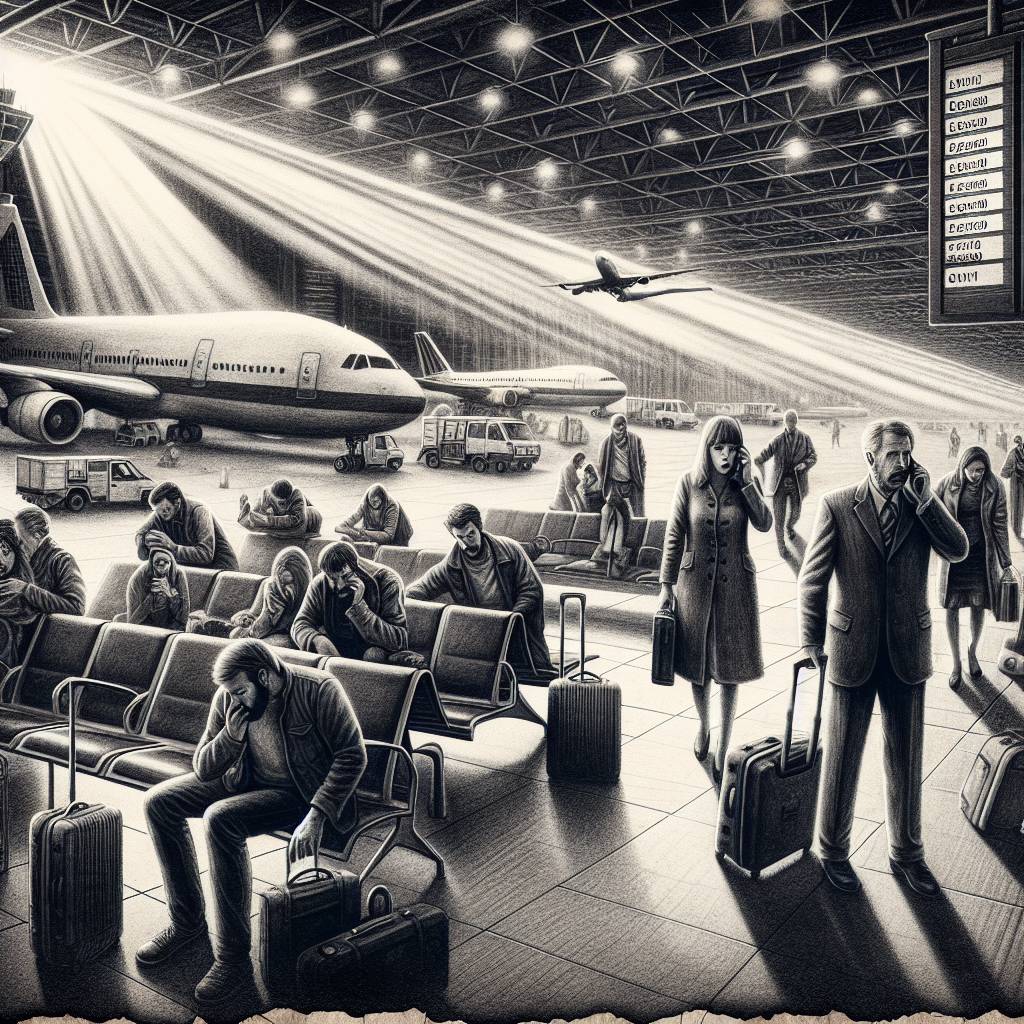European Airports Plunge into Chaos: Cyberattack Grounds Flights and Tests Patience
A cyberattack on Collins Aerospace wreaked havoc across major European airports, turning check-in into a nostalgic manual affair. Heathrow, Brussels, and Berlin saw flight chaos, with over 600 flights disrupted at Heathrow alone. It’s a not-so-gentle reminder that when one vendor trips, the whole airport stumbles.

Hot Take:
When life gives you ransomware lemons, make lemonade with manual check-ins and long lines! This cyberattack on major European airports is a reminder that when your flight gets delayed, it might not just be because your pilot is finishing up their coffee. Instead, blame it on cybercriminals shaking up the aviation world with a good ol’ ransomware shakedown, leaving passengers with more time to explore the fine art of queueing.
Key Points:
- Cyberattack targeted Collins Aerospace, affecting automated check-in and boarding systems at major European airports.
- Heathrow, Brussels, and Berlin airports had to revert to manual processes, causing significant disruptions.
- Ransomware attack led to delays and cancellations, impacting over 600 flights at Heathrow alone.
- Experts highlight the aviation sector’s vulnerability due to reliance on shared digital systems and third-party platforms.
- Resilience strategies include better information-sharing, robust backup systems, and enhanced cybersecurity measures.
Planes, Trains, and Cyber Pains
In a scene that could have been lifted straight from an airport disaster movie, major European airports, including Heathrow, Brussels, and Berlin, found themselves thrown back into the Stone Age of air travel. A cyberattack over the weekend targeted Collins Aerospace, a key provider of automated check-in and boarding systems. With a swift keystroke, hackers sent airports scrambling back to manual methods, turning check-ins into scenes of organized chaos. Passengers had to face the music of longer waiting times and a symphony of frustration as over 600 flights faced delays or cancellations at Heathrow alone. Brussels and Berlin airports also sang a similar tune.
The Hackers’ Guide to Chaos
This cyberattack wasn’t just a random act of digital vandalism. Experts have confirmed it was a ransomware attack, a dreaded term that sends shivers down the spines of IT departments worldwide. It’s not just the inconvenience of delays that has everyone on edge; it’s the realization that the aviation industry, heavily reliant on shared digital systems, is an attractive target for cybercriminals. These attacks tend to strike through the supply chain, exploiting third-party platforms that multiple airlines and airports depend on. When one vendor gets compromised, the ripple effect is immediate, far-reaching, and, as we’ve just witnessed, utterly annoying.
Flight of the Cyber Resilient
Cybersecurity experts from various corners of the industry have donned their capes to offer insights and solutions. They emphasize the need for a layered approach to resilience, including rigorous software patching, continuous monitoring, and well-tested backup systems. But wait, there’s more! A united European front, where information-sharing between governments, airlines, and tech providers becomes the new norm, is deemed essential. After all, cyberattacks don’t respect national borders, and neither should our defenses. In this high-stakes game, treating cybersecurity as a matter of both operational continuity and passenger safety is the name of the game. Because, let’s face it, nobody wants to be “that airport” featured in the next cyber calamity headline.
Third-Party Blues
The attack on Collins Aerospace also serves as a cautionary tale about the risks of relying on third-party providers. As the saying goes, “You’re only as strong as your weakest link,” and in this case, that link happened to be a third-party provider behind critical airport processes. The fallout from the attack was extensive, with the aviation sector’s reliance on external vendors creating a large attack surface. Experts stress the importance of rigorous supplier resilience assessments, redundancy and fallback options, and clear communication protocols during incidents. Because when someone else’s system falters, it’s not just an IT issue; it’s everyone’s problem.
The Tale of the Supply Chain Woes
In the interconnected world of modern aviation, a technical hiccup with a single provider can quickly snowball into a full-blown disruption across multiple airports. It’s a stark reminder that adversaries understand the power of targeting widely used technology services to cause maximum chaos. Organizations relying on third-party systems need to button up their cybersecurity defenses, ensuring every point of access is secured and monitored. Zero trust security models and privileged access management solutions are touted as the keys to limiting the impact of such attacks and maintaining public confidence in essential services. Because let’s be honest, nobody wants to be the airline that couldn’t get off the ground due to a cyber snafu.
Cyber Resilience: The New Frequent Flyer Program
As the dust settles on this cyber debacle, one thing is clear: the aviation industry must put cyber resilience on par with physical safety. Experts emphasize the need to build in graceful failure mechanisms, assuming the worst-case scenario that the primary system will go down. By rehearsing manual operations and maintaining cross-trained staff, airports can ensure ongoing availability even when the digital lights go out. Clear communication and prioritization of vulnerable passengers are also crucial in maintaining trust and confidence. Because at the end of the day, resilience isn’t just about cyber controls; it’s about people, process, and communication to keep the planes flying and the passengers smiling.
